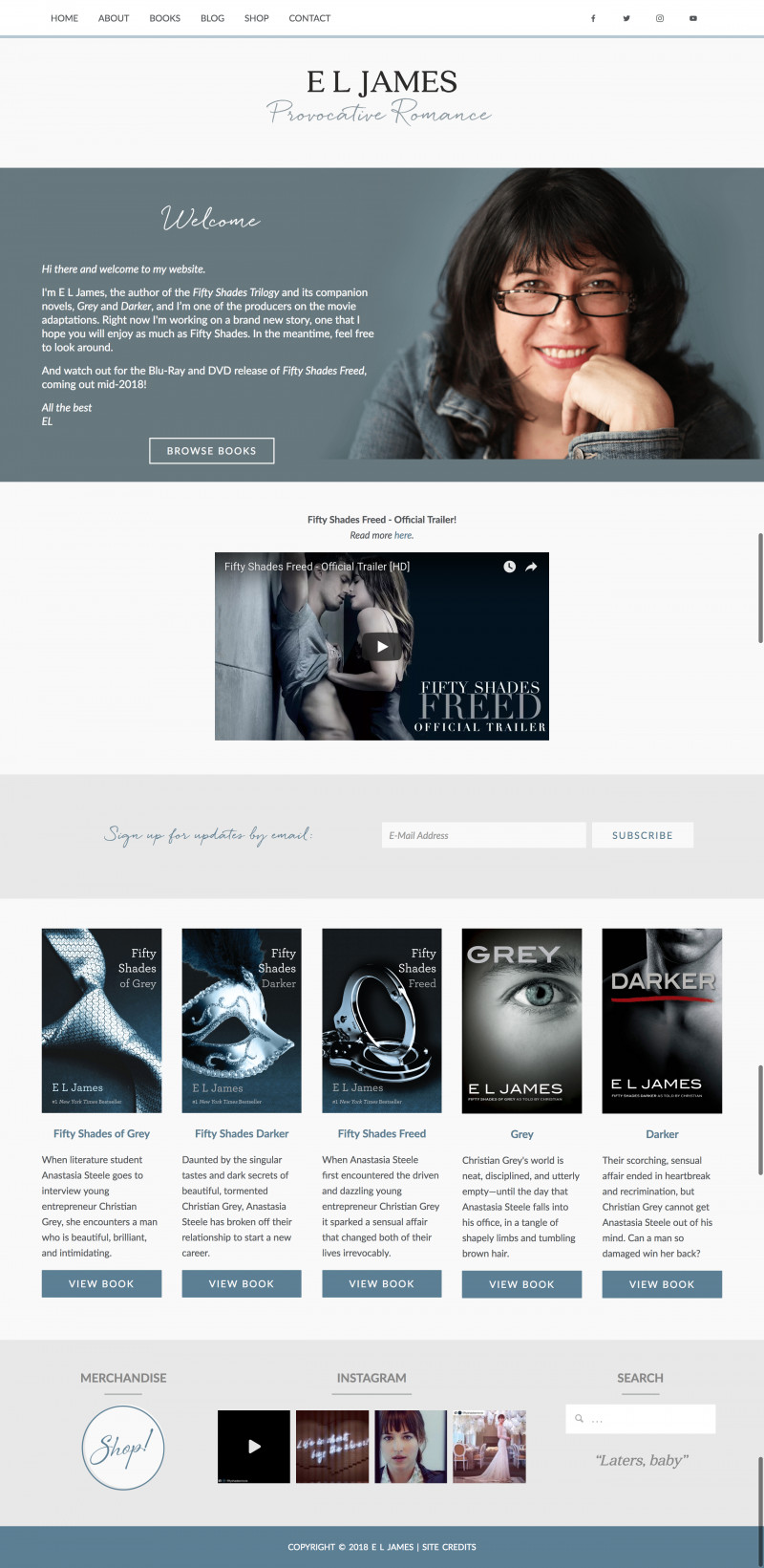
Top Marketing Services for Self-Publishing Authors to Advertise Their Books Effectively
April 2024 I Written by: Pompeii
Brief overview of the challenges self-publishing authors face in promoting their books.
Self-publishing authors encounter several challenges when promoting their books, including:
Limited Visibility: Without the backing of a traditional publishing house, self-published books often struggle to gain visibility in a saturated market.
Marketing Expertise: Many authors lack the marketing expertise and resources needed to effectively promote their books to a wider audience.
Budget Constraints: Self-publishing authors typically operate on limited budgets, making it challenging to invest in professional marketing services or advertising campaigns.
Competition: With millions of books published each year, self-published authors face stiff competition for reader attention, making it difficult to stand out from the crowd.
Credibility Concerns: Some readers may perceive self-published books as lower quality or less credible than traditionally published books, posing a challenge for authors in building trust and credibility with their audience.
Distribution Challenges: Securing distribution in brick-and-mortar bookstores and libraries can be difficult for self-published authors, limiting their reach to potential readers.
Overall, self-publishing authors must navigate these challenges creatively and strategically to effectively promote their books and
reach their target audience.
Effective marketing strategies are crucial for reaching a wider audience and boosting book sales for several reasons:
Visibility: With millions of books available in the market, effective marketing ensures that your book stands out amidst the competition. It increases its visibility across various channels, making it easier for potential readers to discover and engage with.
Audience Targeting:
Marketing strategies allow authors to identify and target specific audience segments who are most likely to be interested in their book. By understanding their readers’ demographics, interests, and preferences, authors can tailor their marketing efforts to resonate with their target audience, leading to higher conversion rates.
Brand Building: Marketing helps authors establish and strengthen their author brand, creating a recognizable identity that resonates with readers. Consistent branding across all marketing channels fosters trust and credibility, encouraging readers to engage with the author’s work and become loyal fans.
Engagement and Connection: Effective marketing facilitates meaningful engagement and connection with readers. By interacting with their audience through social media, email newsletters, and virtual events, authors can build relationships, gather feedback, and create a community around their books, increasing reader loyalty and word-of-mouth recommendations.
Sales Boost: Ultimately, the goal of marketing is to drive book sales. By implementing targeted marketing campaigns, authors can increase awareness, generate interest, and ultimately convince readers to purchase their books, leading to higher sales and revenue.
In summary, effective marketing strategies are essential for authors to reach a wider audience, establish their brand, foster reader engagement, and ultimately boost book sales in today’s competitive publishing landscape.
Audience Reach: Social media platforms have billions of active users worldwide, providing authors with unparalleled access to a vast and diverse audience. By establishing a presence on these platforms, authors can reach readers from different demographics, interests, and geographical locations, expanding their potential reader base.
Engagement Opportunities: Social media platforms offer interactive features such as comments, likes, shares, and direct messaging, enabling authors to engage directly with their readers in real-time. Authors can respond to comments, answer questions, share behind-the-scenes insights, and foster meaningful conversations with their audience, strengthening reader relationships and loyalty.
Content Sharing: Social media platforms allow authors to share various types of content, including book excerpts, cover reveals, author interviews, blog posts, and multimedia content such as videos and images. By regularly sharing engaging and valuable content, authors can captivate their audience’s attention, generate excitement about their books, and keep readers informed about upcoming releases and events.
Brand Building: Social media platforms serve as powerful tools for authors to build and showcase their personal brand. Through consistent branding, storytelling, and content curation, authors can shape their online identity, establish themselves as authorities in their genre or niche, and differentiate themselves from other authors. A strong and authentic brand resonates with readers, fosters trust, and encourages them to connect with and support the author’s work.
Community Building: Social media platforms enable authors to create and nurture communities of like-minded readers who share a common interest in their books or genre. By fostering a sense of belonging, facilitating discussions, and organizing virtual events such as book clubs or author Q&A sessions, authors can cultivate a loyal fan base, encourage reader interaction, and amplify word-of-mouth recommendations.
leveraging popular social media platforms is essential for authors to connect with readers effectively. By harnessing the reach, engagement opportunities, content sharing capabilities, brand-building potential, and community-building features of these platforms, authors can enhance their visibility, expand their audience, and cultivate meaningful relationships with readers, ultimately driving book sales and success in the publishing industry.
Creating Engaging Content
Creating engaging content, running targeted ads, and interacting with followers are essential strategies for building a loyal fan base on social media. Here are some tips for each, along with AI tools that can help optimize content:
Unleash the power of AI tools like Grammarly or ProWritingAid to supercharge your writing and craft captivating content that keeps readers hooked from the first word to the last.
Get creative with Canva or Adobe Spark to design stunning visuals that leap off the screen and capture your audience’s imagination at first glance.
Dive deep into your niche with BuzzSumo or SEMrush, where AI-driven insights uncover trending topics and content ideas that ignite conversations and spark engagement.
Need inspiration? Let ChatGPT or WriteSonic be your muse, generating fresh ideas and content prompts faster than you can say “bestseller.
Interacting with Followers:
Define Your Objectives: Determine your advertising goals, whether it’s to increase book sales, grow your audience, or drive traffic to your website or book landing page.
Know Your Audience: Use audience targeting options provided by social media platforms to reach users based on demographics, interests, behaviors, and engagement with your content.
Test and Iterate: Experiment with different ad creatives, ad formats, targeting options, and ad placements to identify what resonates best with your audience and drives the desired results.
Monitor Performance: Regularly monitor the performance of your ads using analytics tools provided by the social media platforms. Analyze key metrics such as click-through rates, conversion rates, and return on ad spend to optimize your campaigns for better results.
Set a Budget: Define your advertising budget based on your objectives and allocate funds strategically to maximize your ad reach and impact.
Running Targeted Ads:
Take control of your social media empire with Sprout Social or Hootsuite, reigning supreme over your kingdom and scheduling posts like a boss.
Roll out the red carpet for your followers with chatbots powered by AI platforms like ManyChat or Chatfuel, delivering VIP treatment and lightning-fast responses that leave them craving more.
Stay ahead of the curve with sentiment analysis tools like Brandwatch or Mention, keeping your finger on the pulse of your audience and turning feedback into fuel for growth.
Rule the roost with AI-powered analytics tools like Socialbakers or Sprinklr, uncovering hidden insights and unlocking the secret to social media domination.
Harnessing the Power of Email Marketing
Explain the benefits of building an email list and sending regular newsletters to keep readers informed about new releases, promotions, and events.
Strategies for growing an email list, crafting compelling email campaigns, and optimizing open and click-through rates.
You can use any of the following exciting email marketing tools authors can use to engage their audience and build a loyal fan base.
Here are some exciting email marketing tools authors can use to engage their audience and build a loyal fan base:
Mailchimp: With its user-friendly interface and robust features, Mailchimp is a popular choice for authors to create and send captivating email campaigns. From customizable templates to advanced automation, Mailchimp offers everything you need to connect with your readers effectively.
ConvertKit: Designed specifically for creators, ConvertKit provides intuitive email marketing tools tailored to authors, bloggers, and other content creators. With features like customizable sign-up forms, segmentation, and drip campaigns, ConvertKit helps authors nurture relationships with their audience and grow their email list.
Constant Contact offers a comprehensive suite of email marketing tools, including customizable templates, contact management, and tracking analytics. It’s a great option for authors looking to streamline their email marketing efforts and drive engagement with their readers.
AWeber: AWeber is a trusted email marketing platform known for its reliability and deliverability. Authors can use AWeber to create visually appealing emails, automate campaigns, and track results to optimize their email marketing strategy and grow their fan base.
GetResponse: GetResponse offers a wide range of email marketing features, including drag-and-drop email builders, marketing automation, and A/B testing. Authors can leverage GetResponse to create personalized and targeted email campaigns that resonate with their audience and drive book sales.
ActiveCampaign: ActiveCampaign is a powerful email marketing and automation platform that empowers authors to create personalized customer journeys based on user behavior and interests. With features like predictive sending and dynamic content, authors can deliver tailored messages that engage and convert their audience effectively.
Drip: Drip is an email marketing platform designed for ecommerce businesses and content creators. Authors can use Drip to create automated email sequences, segment their audience, and track user behavior to deliver targeted messages that drive reader engagement and book sales.
By leveraging these email marketing tools, authors can effectively connect with their audience, nurture relationships, and build a loyal fan base that eagerly awaits their next book release.
Exploring Book Bloggers and Review Sites
Securing reviews from reputable book bloggers and review sites is paramount for authors seeking to increase book visibility and credibility. Here’s why:
Increased Exposure: Reviews from respected book bloggers and review sites can significantly increase a book’s exposure to a wider audience. These platforms have established followings of avid readers who trust their recommendations, making them invaluable channels for reaching potential readers.
Social Proof: Positive reviews serve as powerful social proof of a book’s quality and appeal. When readers see endorsements from trusted sources, they are more likely to perceive the book as worth their time and investment, thus boosting credibility and encouraging sales.
SEO Benefits: Reviews from reputable sources can also improve a book’s search engine optimization (SEO) by generating backlinks and driving traffic to the book’s sales page or author website. This increased online visibility can lead to higher rankings in search engine results pages, further enhancing discoverability.
Validation for Readers: Readers often rely on reviews to inform their purchasing decisions and gauge whether a book aligns with their interests and preferences. Reviews from respected sources provide valuable insights and reassurance, helping readers feel confident in their decision to explore a new book.
Professional Endorsement: Reviews from reputable book bloggers and review sites carry weight in the literary community and can serve as professional endorsements for authors. These endorsements not only validate the author’s work but also contribute to their reputation as a credible and respected voice in the industry.
Securing reviews from reputable book bloggers and review sites is essential for authors looking to increase book visibility and credibility. These reviews offer exposure to a broader audience, provide social proof of quality, boost SEO, validate the book for readers, and enhance the author’s professional reputation—all of which are critical factors in driving book sales and success in the competitive publishing landscape.
Participating in Virtual Book Tours and Author Events
Participating in virtual book tours, online author interviews, and virtual book signings offers authors valuable opportunities to engage with readers, create excitement, and generate buzz around their book launches. Here’s how:
Virtual Book Tours
Reach a Global Audience: Virtual book tours allow authors to connect with readers from around the world without the need for travel. Through blog tours, author spotlights, and social media takeovers, authors can reach diverse audiences and expand their reader base.
ngage with Readers: Authors have the chance to interact directly with readers through virtual book tour events, including Q&A sessions, live readings, and discussion panels. This engagement fosters meaningful connections and builds rapport with readers, leading to increased book sales and fan loyalty.
Boost Visibility: By appearing on multiple blogs, podcasts, and social media platforms during a virtual book tour, authors can increase their book’s visibility and reach a wider audience. Each tour stop introduces the book to new readers and generates excitement, ultimately driving interest and sales.
Online Author Interviews
Personal Connection: Author interviews provide a platform for authors to share their personal journey, inspiration, and behind-the-scenes insights with readers. These interviews humanize the author and create a connection with readers, making them more invested in the book and its success.
Showcase Expertise: Interviews allow authors to showcase their expertise, perspective, and unique voice, positioning them as authorities in their genre or niche. This credibility enhances the book’s appeal and encourages readers to trust and explore the author’s work.
Expand Reach: Online author interviews can be shared across various platforms, including blogs, podcasts, social media, and author websites. This multi-channel distribution amplifies the interview’s reach and exposes the author to new audiences, driving traffic and interest in the book.
Virtual Book Signings
Interactive Experience: Virtual book signings offer readers the opportunity to interact with authors in real-time, ask questions, and receive personalized signed copies of their books. This interactive experience replicates the excitement of traditional book signings while overcoming geographical barriers and reaching a broader audience.
Convenience: Virtual book signings eliminate the need for readers to travel to physical bookstores, making it more convenient for them to participate. Readers can join from the comfort of their homes, increasing accessibility and participation rates.
Social Sharing: Virtual book signings often include elements such as live video streams, social media interactions, and digital bookplates, allowing readers to share their experience with friends and followers online. This social sharing generates buzz and word-of-mouth promotion, increasing awareness and sales of the book.
Participating in virtual book tours, online author interviews, and virtual book signings offers authors invaluable opportunities to engage with readers, generate excitement, and build momentum around their book launches. These virtual events create meaningful connections, boost visibility, and drive interest and sales, ultimately contributing to the success of the book.
Investing in Professional Book Cover Design and Copywriting:
Similarly, investing time and effort into crafting a compelling book description is crucial for attracting and engaging potential readers. Here’s why:
Sales Impact: Studies have shown that books with professionally designed covers outsell those with amateur or generic covers. A visually appealing cover and compelling book description work together to compel readers to make a purchase, driving sales and revenue for the author.
Building Credibility: A professionally written book description signals to readers that the author is serious about their craft and has put thought and effort into crafting an engaging story. This builds trust and credibility with readers, increasing their likelihood of purchasing the book.
Visual Branding: A well-designed book cover serves as a powerful branding tool, conveying the tone, genre, and personality of the book at a glance. Consistent branding across an author’s book covers creates recognition and loyalty among readers, helping to establish the author’s brand in the market.
Canva is an excellent tool for designing your own book cover, offering a user-friendly interface and a wide range of design features. Here are some key features and benefits of using Canva for book cover design:
When it comes to ensuring a polished presentation for your book, especially with regards to cover design and book description, it’s often beneficial to work with experienced designers and copywriters. Here are some recommendations for hiring professionals or utilizing professional services:
Freelance Platforms: Websites like Upwork, Freelancer, and Fiverr are popular platforms where you can find experienced designers and copywriters. You can browse through portfolios, read reviews, and hire freelancers who specialize in book cover design and copywriting.
Design Agencies: Consider hiring a design agency or studio that specializes in book cover design and branding. These agencies often have a team of experienced designers who can create custom, high-quality book covers tailored to your vision and genre.
By hiring experienced designers and copywriters or utilizing professional services, authors can ensure a polished presentation for their books, enhancing their appeal to readers and maximizing their chances of success in the competitive publishing landscape.
Building Author Branding and Online Presence
Establishing a robust author brand and professional online presence is essential for connecting with readers, building credibility, and promoting your work effectively. Through author websites, blogs, and social media profiles, you can foster connection with readers on a personal level, showcasing your expertise in your genre or niche and amplifying your visibility within your target audience. By cultivating relationships with readers, influencers, and fellow authors, you can drive book sales, differentiate yourself from the competition, and ultimately establish yourself as a respected and recognizable figure in the literary world.
Crafting a compelling author bio involves highlighting your unique story, accomplishments, and passions in a concise and engaging manner. Start by outlining your writing journey, including any notable achievements or experiences that shaped your path as an author. Be sure to infuse your bio with personality and authenticity, allowing readers to connect with you on a personal level. Maintain consistency across platforms by using the same tone, voice, and key messaging in your bio across your author website, social media profiles, and book listings. Finally, engage with readers authentically by responding to comments, sharing behind-the-scenes glimpses into your writing process, and participating in conversations relevant to your genre or niche. By staying true to yourself and consistently communicating your story and values, you’ll create a compelling author brand that resonates with readers and leaves a lasting impression.
Measuring and Analyzing Marketing Efforts
Tracking marketing efforts and analyzing key metrics is crucial for authors to evaluate campaign performance and make informed, data-driven decisions. By monitoring metrics such as website traffic, social media engagement, email open rates, and book sales, authors can assess the effectiveness of their marketing strategies and identify areas for improvement. This data allows authors to understand which tactics are resonating with their audience, optimize their marketing efforts for better results, and allocate resources more efficiently. Additionally, tracking metrics over time provides valuable insights into trends and patterns, enabling authors to adapt their strategies in real-time to maximize impact and achieve their goals. Ultimately, by prioritizing data-driven decision-making, authors can optimize their marketing efforts, enhance their visibility, and increase their chances of success in the competitive publishing landscape.
Utilizing tools such as Google Analytics, social media insights, and email marketing software is essential for authors to monitor results and optimize their marketing strategies effectively. Here are some recommendations for leveraging these tools:
Google Analytics:
Set up Google Analytics for your author website to track website traffic, user behavior, and conversion metrics.
Monitor key metrics such as website visits, page views, bounce rate, and conversion goals (e.g., book purchases, email sign-ups).
Use audience demographics and interests data to understand your website visitors better and tailor your content and marketing efforts accordingly.
Analyze traffic sources to identify which channels (e.g., organic search, social media, referral sites) are driving the most visitors to your website.
Social Media Insights:
Utilize built-in analytics tools provided by social media platforms (e.g., Facebook Insights, Twitter Analytics, Instagram Insights) to track performance metrics.
Monitor engagement metrics such as likes, shares, comments, and click-through rates to gauge the effectiveness of your social media content.
Identify trends and patterns in audience behavior, including peak engagement times, audience demographics, and content preferences.
Experiment with different types of content (e.g., images, videos, polls) and posting schedules based on insights gathered from social media analytics.
Email Marketing Software:
Use email marketing platforms such as Mailchimp, Constant Contact, or ConvertKit to create and send targeted email campaigns to your subscribers.
Track email open rates, click-through rates, and conversion rates to measure the performance of your email marketing campaigns.
Segment your email list based on audience preferences, behavior, and demographics to deliver more personalized and relevant content.
A/B test different email subject lines, content formats, and calls-to-action to optimize your email marketing strategy and improve engagement rates.
These tools and insights, authors can gain valuable data-driven insights into their marketing efforts, identify areas for improvement, and optimize their strategies to better connect with their audience, drive engagement, and ultimately achieve their marketing goals.
Key marketing services discussed include:
Professional book cover design: Essential for grabbing readers’ attention and conveying the genre and tone of the book effectively.
Compelling book descriptions: Crucial for enticing readers and providing them with a clear understanding of what to expect from the book.
Effective social media marketing: Utilizing platforms like Facebook, Instagram, Twitter, and LinkedIn to connect with readers, build relationships, and promote book launches and events.
Engaging email marketing campaigns: Leveraging email lists to nurture relationships with subscribers, share updates about new releases, and drive book sales.
Book reviews and endorsements: Securing reviews from reputable sources to increase credibility, build social proof, and attract new readers.
Importance:
These marketing services are vital for promoting self-published books effectively as they enhance visibility, credibility, and engagement with readers. A professional book cover and compelling book description capture readers’ interest, while social media and email marketing provide channels to reach and connect with a wider audience. Positive reviews and endorsements further validate the book’s quality and encourage readers to make a purchase.
Encouragement:
Self-publishing authors are encouraged to implement these strategies and adapt them to their unique goals and target audience. By investing in professional marketing services and consistently engaging with readers through various channels, authors can maximize their book’s potential for success in the competitive publishing landscape. Remember, each author’s journey is unique, so be patient, persistent, and open to learning and refining your approach along the way. With dedication and strategic marketing efforts, self-published authors can achieve their goals and reach new heights in their writing careers.
Considering signing up with a self-publishing agency for additional advertising services, such as digital billboards in Times Square New York, can significantly alleviate the workload for authors. With a dedicated manager overseeing the execution of marketing procedures, authors can focus more on their writing while still reaping the benefits of increased visibility and promotion. Small self-publishing companies like EC Publishing LLC, Banners and Billboards LLC, and Post it Big LLC offer agile marketing fulfillment, ensuring efficient and effective delivery of advertising campaigns to enhance the author’s brand and book exposure.


It’s time to take action! Start implementing the discussed marketing strategies today to promote your self-published books effectively. Invest in professional book cover design, craft compelling book descriptions, engage with readers on social media, and leverage email marketing campaigns to build excitement around your work. Remember, positive reviews and endorsements can further boost your book’s credibility. Don’t hesitate to explore additional advertising services offered by self-publishing agencies to expand your reach, such as digital billboards in prominent locations like Times Square New York. With dedication and strategic marketing efforts, you can increase visibility, attract more readers, and achieve success as a self-published author.
Remember that promoting your self-published book is a journey filled with challenges and opportunities. By implementing the discussed marketing strategies, leveraging additional resources, and staying dedicated to your goals, you can elevate your book’s visibility, connect with readers, and achieve success as an author. Stay proactive, persistent, and open to learning, and don’t hesitate to seek support and guidance along the way. With passion, perseverance, and strategic marketing efforts, your book has the potential to make a meaningful impact in the literary world. Best of luck on your publishing journey!






